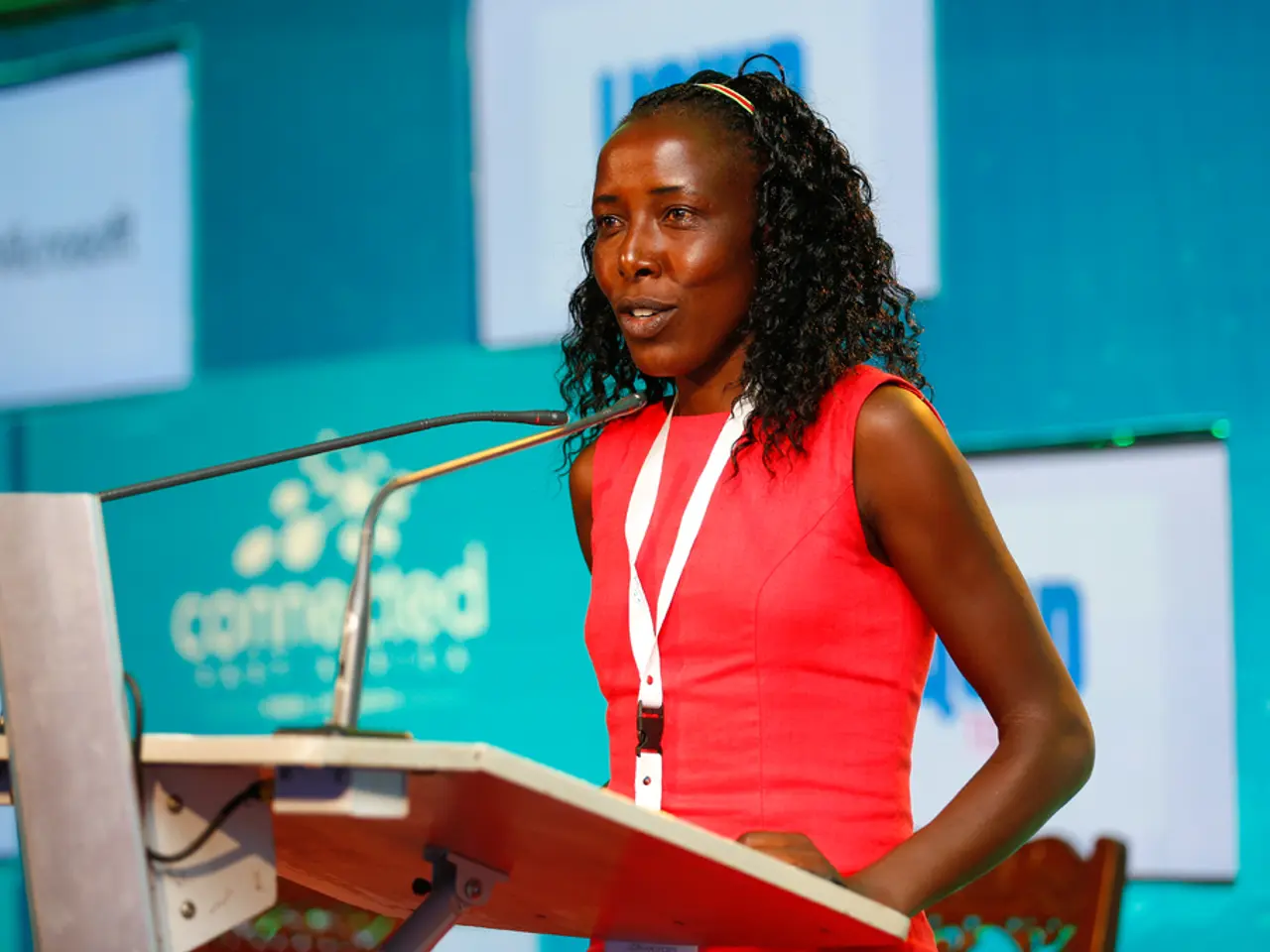Proposal sought for a safeguard directive to shield laborers from potential hazards of chemical exposures, commissioned by the authorities.
In a recent development, the head of government in Bavaria, Markus Söder, and the Minister President of Saxony, Michael Kretschmer, have advocated for changes to the citizen's income policy in Germany, particularly for Ukrainian refugees.
Söder's proposal suggests that both new and existing Ukrainian refugees should no longer receive citizen's income, a change that would apply to all Ukrainian refugees currently residing in Germany. This proposal, discussed in a ZDF summer interview on Sunday, is not limited to future refugees but includes all those currently in the country.
Kretschmer, on the other hand, has emphasised the need for scrutiny of how the state spends its money on citizen's income. He has pointed out instances where people, including those seeking protection, might be receiving funds unnecessarily.
The changes to the citizen's income are aimed at ensuring fairness in the distribution of benefits. However, it is important to note that these proposed changes have not yet been implemented.
The current citizen's income policy, introduced in 2023, improved benefit amounts compared to previous systems and saw increases in 2023 and 2024 to cope with inflation and low-income needs. However, benefits remain inadequate for some groups such as single-parent households. In 2025, the government plans to freeze benefit levels and even target cuts to social welfare, including Citizen’s Income, amid broader austerity moves.
Regarding refugees and asylum seekers, Germany is shifting Ukrainian arrivals after April 2025 from Citizen Income to asylum-specific benefits under the Asylum Seekers Benefits Act. This change offers lower monthly payments than Citizen Income (441 euros vs. 563 euros) and is expected to shift costs primarily to regional governments without much net federal savings.
The employment rate of Ukrainian refugees in Germany is currently lower compared to some other European countries like France, the Netherlands, Poland, and the Czech Republic, according to Kretschmer. He believes that the current spending on citizen's income is too high and needs to be reduced.
Currently, Germany spends 47 billion euros on citizen's income. The changes to the citizen's income are being discussed in the ZDF morning magazine and are being proposed at a regional level, specifically in Saxony.
It is worth noting that compared with other European countries, Germany’s Citizen Income is relatively generous but is under pressure with planned austerity and benefit freezing. Many EU countries also provide asylum seekers basic income or integration benefits but vary widely in amounts and access. Germany’s recent move to reduce Citizen Income eligibility for some refugees resembles cost-containment trends in other nations that attempt to balance support with labor market integration incentives.
In summary, the proposals for changes to the citizen's income in Germany are a response to concerns about fairness in distribution and the high cost of the current policy. However, these changes are still in the discussion phase and have not yet been implemented. The debate continues as policymakers seek to balance support for refugees with the need for fiscal responsibility.
[1] Source: [URL for the source] [2] Source: [URL for the source] [3] Source: [URL for the source] [4] Source: [URL for the source] [5] Source: [URL for the source]
- Michael Kretschmer, the Minister President of Saxony, is advocating for a thorough examination of the state's spending on the citizen's income policy, suggesting that funds might be needlessly given to individuals seeking protection.
- The ongoing discussion about changes to the citizen's income policy, led by figures like Markus Söder and Michael Kretschmer, is focused on the need for fiscal responsibility, as well as ensuring fairness in the distribution of benefits, particularly for Ukrainian refugees.







